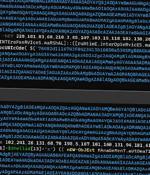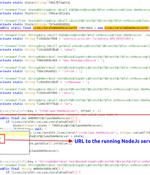Security News

The Indian government said it has rescued and repatriated about 250 citizens in Cambodia who were held captive and coerced into running cyber scams. The Indian nationals "were lured with...

Indian government entities and energy companies have been targeted by unknown threat actors with an aim to deliver a modified version of an open-source information stealer malware called...

A previously undocumented threat actor dubbed SPIKEDWINE has been observed targeting officials in European countries with Indian diplomatic missions using a new backdoor called WINELOADER. The...

Asia In Brief Indian infosec firm CloudSEK last week claimed it found records describing 750 million Indian mobile network subscribers on the dark web, with two crime gangs offering the trove of data for just $3,000. CloudSEK named CYBO CREW affiliates CyboDevil and UNIT8200 as the vendors of a 1.8TB trove, which contains mobile subscribers' names, phone numbers, addresses, and Aadhaar details.

Indian government entities and the defense sector have been targeted by a phishing campaign that's engineered to drop Rust-based malware for intelligence gathering. The activity, first detected in...

Android smartphone users in India are the target of a new malware campaign that employs social engineering lures to install fraudulent apps that are capable of harvesting sensitive data. “Using...

The Vietnamese threat actors behind the Ducktail stealer malware have been linked to a new campaign that ran between March and early October 2023, targeting marketing professionals in India with an aim to hijack Facebook business accounts. Ducktail, alongside Duckport and NodeStealer, is part of a cybercrime ecosystem operating out of Vietnam, with the attackers primarily using sponsored ads on Facebook to propagate malicious ads and deploy malware capable of plundering victims' login cookies and ultimately taking control of their accounts.

The Pakistan-linked threat actor known as SideCopy has been observed leveraging the recent WinRAR security vulnerability in its attacks targeting Indian government entities to deliver various remote access trojans such as AllaKore RAT, Ares RAT, and DRat. Enterprise security firm SEQRITE described the campaign as multi-platform, with the attacks also designed to infiltrate Linux systems with a compatible version of Ares RAT. SideCopy, active since at least 2019, is known for its attacks on Indian and Afghanistan entities.

Indian politicians and media figures have reported that Apple has warned them their accounts may be under attack by state-sponsored actors. Mahua's post therefore accuses India's government of being the state actor Apple believe has attacked her iPhone.

A new open source remote access trojan called DogeRAT targets Android users primarily located in India as part of a sophisticated malware campaign. The malware is distributed via social media and messaging platforms under the guise of legitimate applications like Opera Mini, OpenAI ChatGOT, and Premium versions of YouTube, Netflix, and Instagram.